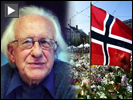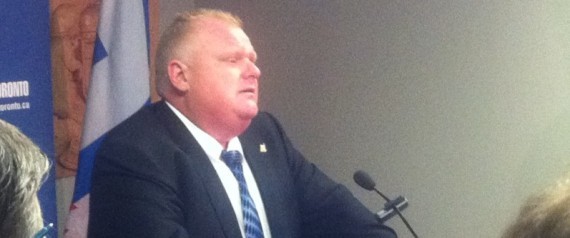
A brief summary of consultant KPMG’s suggestions for cost-cutting in the 2012 Toronto operating budget.
Public works
• Environment days: Scrap service that allows citizens to bring in household hazardous waste, exchange bins or pick up compost one day a year: $500,000
• Street events: Consider setting fees from all events high enough to recover all city costs such as cleanup: $700,000
• Fluoride: Eliminate fluoridation of water, which dentists say prevents cavities: $1.9 million
• Snow: Stop clearing snow piles left by the plow at the end of suburban driveways: $3.7 million.
• Toxic taxi: End household pickup of hazardous items such as paint cans. $185,859
• Garbage tags: Stop giving residents free tags allowing them to put out extra garbage up to four times a year: $593,000
• Commercial waste: Stop picking up garbage from retailers on commercial strips: $7 million
Economic development
• Reduce or eliminate Business Services: End programs such as support to film industry and 7,000 entrepreneurs: $3.1 million
• Reduce or eliminate Cultural Services: $17.3 million
• Reduce Trade and Sector Development activities: a portion of $3.9 million
• Reduce staff support to BIAs, or recover costs of support: a portion of $1.3 million
• Reduce or eliminate TESS Social Supports: $1.5 million
Community development
• Child care: Transfer or sell city-operated child-care centres: $16 million
• Child-care subsidies: Eliminate the 2,000 city-only subsidies: $24 million
• Emergency services: Consider integrating fire and ambulance: $81 million.
• Nursing homes: Sell or transfer nine of 10 city nursing homes: about $40 million (Star’s estimate)
Parks
• Attractions: Eliminate zoo and farm attractions: $1.3 million
• Planting: Eliminate urban agriculture activities: $490,000
• Environment: Reduce or eliminate Toronto Environment Office: $3.2 million
• Trees: Allow a lower rate of tree planting and maintenance of existing trees: Net budget for planting is $2 million
• Flowers: Scrap the greenhouse program, where the city grows 1.3 million annuals every year to plant in parks: estimated $700,000.
Licensing
• Cats and dogs: Review the value of cat and dog licensing. Program brings in $660,000 a year.
• Rescue: Reduce response time for emergency animal rescue: $225,000.
• Shelters: Outsource animal care and enforcement: $1.7 million
• Licences: Consider eliminating licensing that doesn’t serve the public interest. Licensing fees net the city $5.9 million
• Recycling: Outsource waste diversion enforcement in apartment buildings: $258,000
• Delivery: Require people to deliver animals to shelter themselves: $640,000
Government Management
• 311: Outsource some 311 call centre work to a private contractor: $540,000
• Tax payment: Offer online payment of property taxes: $355,000
• Caretaking: Outsource cleaning and security at city buildings: $1.6 million
• Fleet: Place police, fire and certain transit vehicles under central fleet management: $2.4 million
• Payroll: Outsource payroll administration: $1.8 million
Planning and growth
• Public art: Eliminate public art program such as statues and other artworks outside buildings: $95,000.
• Signs: Cut or end illegal-sign inspections and investigation of illegal-sign complaints: $855,000.
• Planning: Scale back site plan approval requirements on small developments: $970,000.
Executive
• Library: Close an unspecified number of branches: up to $13.4 million; reduce hours or days of service: up to $17.5 million.
• Toronto Zoo: Sell to private owners or divest to other levels of government to avoid taxpayer subsidy: $11.4 million.
• Exhibition Place: Sell or privatize. Talk to the province about merging Exhibition Place with Ontario Place. (Exhibition Place is budgeted to break even this year.)
• Public health: Scrap grants budget that supports 685 student nutrition programs for low income children; 42 AIDS prevention programs; 38 community drug prevention projects: $6.2 million.
• Toronto Atmospheric Fund: Wind up fund that provides grants for energy-saving projects. Or have the city look after investments that fund the grants: up to $23 million
• Theatres: Place Sony Centre, St. Lawrence Centre and Toronto Centre for the Performing Arts under a single board. Consider selling one of the theatres. Total subsidy in 2011: $3.3 million.
• Parking authority: Sell parking lots and garages. (Profit-making parking authority will earn about $56 million this year.)
• Police: Negotiate with the police union to approve one-officer patrols and restrain wages and benefits when contract comes up for renewal in 2015: up to $195 million.
• TTC: Roll back service improvements and end overnight bus service or raise fares: up to $29 million.
Origin
Source: Toronto Star 














